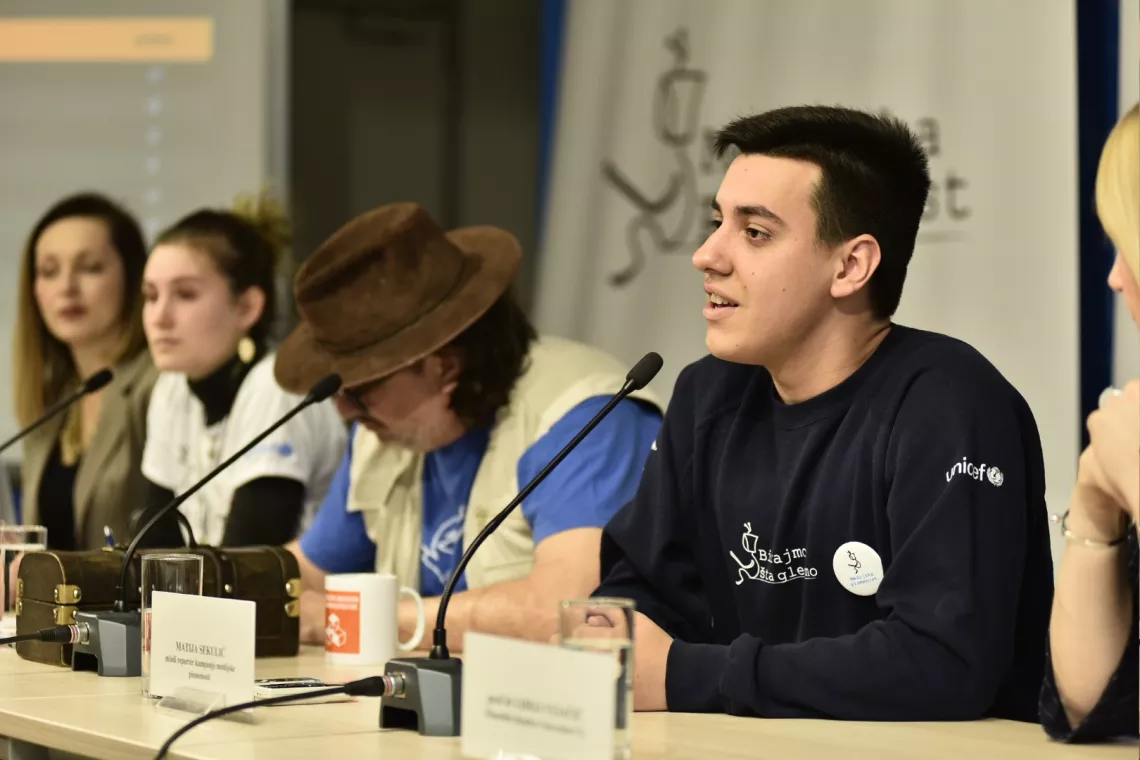Rambo Amadeus: Watching reality shows does not pave the way to the Sorbonne
Media literacy

- Available in:
- Crnogorski
- English
PODGORICA, 15 MAY – “If your kids see you watching rubbish, don’t expect them to end up at the Sorbonne” – this was the message that the UNICEF Goodwill Ambassador, Antonije Pusic aka Rambo Amadeus, sent out to parents in Montenegro on the occasion of International Family Day.
Parents’ primary task is to familiarize their children with some quality – any quality, really – because children who have been presented with quality in any area automatically develop more sophisticated criteria.
Faculty of Philosophy teacher Lidija Vujacic said that being media-literate means having a critical approach to any poor-quality, useless or age-inappropriate contents, but it also means striking a balance between media consumption and other activities.
While ‘guiding’ their children through the programming schedule, parents need to highlight to them beneficial and harmful media content and the distinction between the real world and fiction, good and bad role models.
At the NGO Parents, they believe that the family is the key to children’s media literacy and that parents need to work on their own media literacy first.
As an organization that gathers together parents, we want to address this issue further, since the family has so much influence on the development of media literacy, in particular during early development.
The young reporters of the media literacy campaign titled “Let’s Choose What We Watch” shared that they felt disappointed by the fact that reality shows were the most searched-for YouTube video content in Montenegro in 2018.

When we asked parents in Montenegro during the media literacy campaign survey how often they watched reality TV shows, the majority of them, namely 71 per cent, said never or rarely. Clearly, this was the socially desirable response and not all of the respondents were being honest. It remains for us to hope that children do not watch reality shows on TV or on social media.
The campaign survey showed that almost one-third of parents did not restrict content to make sure it is age-appropriate, and one in four never or only rarely discussed age-inappropriate online or TV content with their children.
These parents’ children are being neglected, they are being left to themselves when it comes to the media, since their parents are not helping develop their media culture and literacy. On this International Family Day, I would like to remind you that being a good parent in the digital age necessarily implies addressing the media content that children follow, teaching them how to recognize quality, how to choose what they watch, listen to and read, and how to critically appraise all the information they get from the media.

The Agency for Electronic Media and the UNICEF launched the “Let’s Choose What We Watch” campaign in February of last year. One year into its implementation, one in two citizens of Montenegro have heard about the campaign which aims to help develop media literacy among children and parents, enhance the media’s capacity to produce good media content with children and young people and for ethical reporting on all issues to do with children’s rights in Montenegro.




